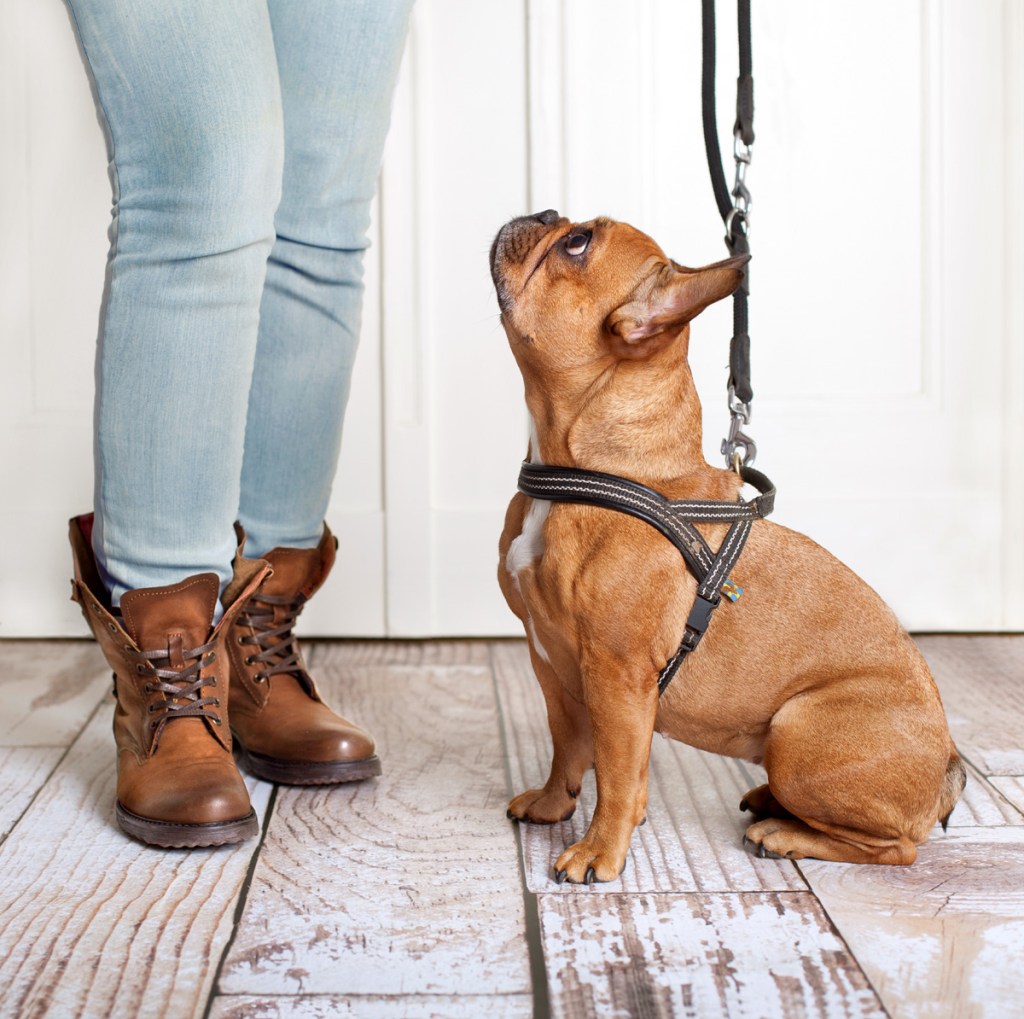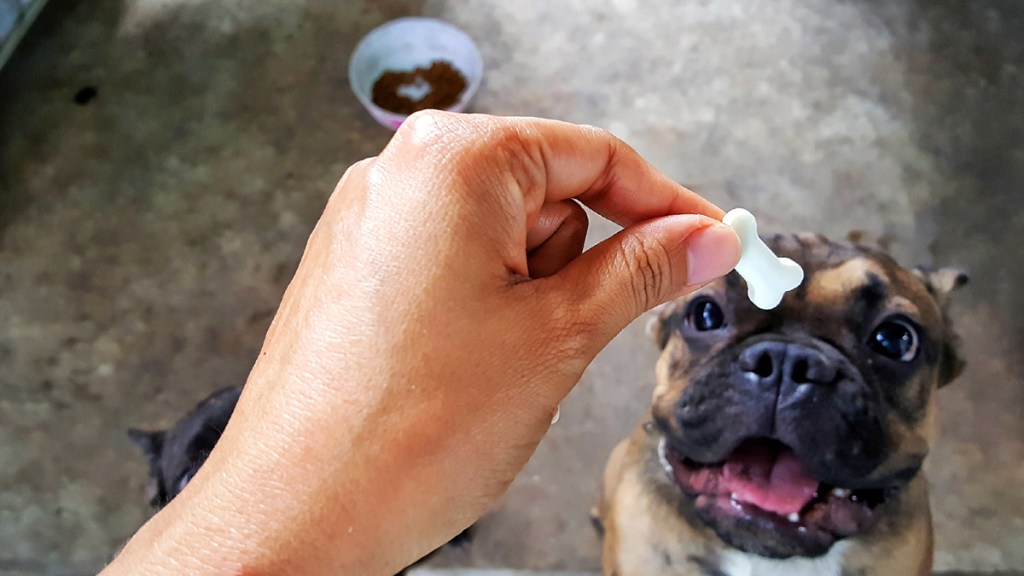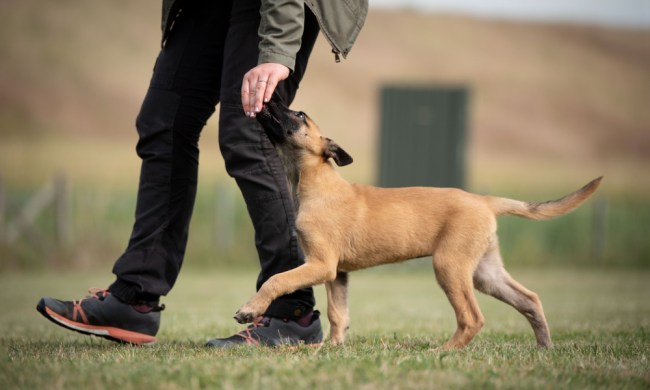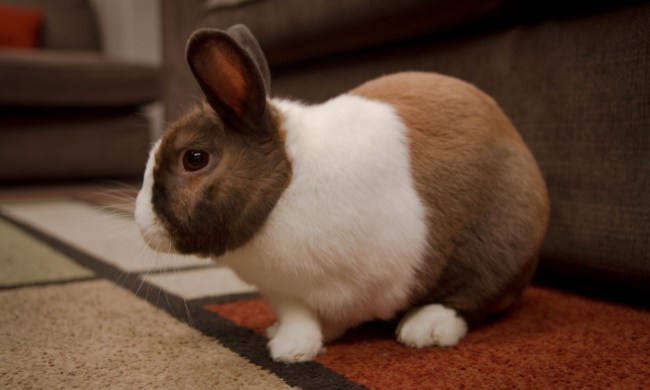French Bulldogs are quickly becoming one of the most popular dogs in the U.S., ranking number two on the American Kennel Club’s (AKC) Most Popular Dog Breed list. In Miami and San Francisco, these feisty little dogs take top billing according to a recent Rover.com survey of the most popular breeds. While celebrities such as Martha Stewart and Lady Gaga helped give exposure to French Bulldogs, it’s their small size, cute expressions, and playful personalities that have melted hearts nationwide. Cuteness aside, like all dogs, this breed needs training and discipline to help them become loving members of their families. We’ll fill you in on how to train a French Bulldog puppy the right way.

Are French Bulldogs easy to train?
According to the AKC, French Bulldogs (fondly known as Frenchies) can be stubborn, but they are people-pleasers at heart, which makes them easy to train. Positive reinforcement is the way to go when it comes to working with this breed. By making a game out of training and rewarding with treats and praise, your Frenchie will be excited to learn.
Sharon Dykes, a board member of the French Bulldog Club of America, describes Frenchies as active, intelligent, alert, and playful dogs. Puppies will be ready to learn as soon as they arrive in your home, Dykes says. Early lessons will include potty training and crate training, but you can also start teaching your newcomer simple basic obedience commands such as “sit,” “down,” and “stay.” This is also a great time to work with your Frenchie on coming when called and walking on a leash. Puppies have short attention spans so training sessions should be short. In a VCA Animal Hospital article, veterinarian Debra Horwitz says to strive for at least 15 minutes of training per day. Sessions can be broken into five minutes at a time and spread throughout the day.
In addition to training at home, early socialization and puppy training classes will help your Frenchie grow into a well-adjusted adult. If all puppies in the class have had their initial vaccinations and are healthy and parasite-free, the health risks to your dog are low and the potential benefits are enormous, according to Horwitz.
How do you discipline a French Bulldog?
You should never discipline your dog with punishment. Not only is it cruel, but it will destroy the bond between you and your new puppy. Instead, stick with positive motivation training. This means redirecting your dog away from bad behavior and rewarding her for desired behavior. Because the reward makes them more likely to repeat the wanted behavior, positive reinforcement is one of the most powerful tools you have for changing a dog’s behavior, according to experts at the Humane Society of the United States. However, for it to work properly you must follow some basic guidelines:
- Reward your Frenchie within seconds of performing the desired behavior so she understands why she’s being rewarded.
- Keep cues short such as “sit” or “down” or “look at me.” Verbal cues should be given in a calm voice, and repeating the command should be avoided. Ask once and wait for the dog to follow through before rewarding and praising.
- Everyone in the household should use the same cues and training techniques to avoid confusing your dog.
How long does it take to train a French Bulldog puppy?
As your puppy progresses in her basic obedience training, you may reach a bump in the road between 6 and 8 months of age. Her hormones will start to kick in at this point and she may try to establish her place within the pack. This is a good time to enroll your dog in more advanced training classes, according to Dykes.
By the time your puppy is 1 year old, she should be well on her way to becoming a good canine citizen. Experts say that training should continue throughout your dog’s life. Keeping training sessions fun and adding new skills will provide your Frenchie with the mental stimulation she needs to stay happy and healthy.

How do you train a stubborn French Bulldog?
While it’s true that Frenchies are generally easy to train, they do have a stubborn streak that can become more apparent as they age, according to a Canna-Pet article. If this behavior isn’t handled appropriately your dog may show aggressive tendencies, say training experts.
In an article entitled Living with The French Bulldog, Dykes says that, while Frenchies have big hearts and are generous with their affection, they need an investment of time, love, and commitment on the part of their owners. “Don’t let them outthink you while using their cuteness to pull the wool over your eyes! They need the training to focus them in positive directions,” the breeder says. Consistency is the key to success when working with Frenchies. Pet parents need to create a training schedule and then stick to it. “If you’re not consistent, it will be harder to train your puppy,” says Dykes. Using high-quality treats that are reserved only for training is a great way to get your stubborn dog excited about learning.
On a final note, remember that training is part of being a responsible pet parent. To love your dog is to learn with your dog say experts at the Humane Animal Rescue of Pittsburgh. Positive reward-based training will bring out the best in your French Bulldog while strengthening the bond between you and your pet.



